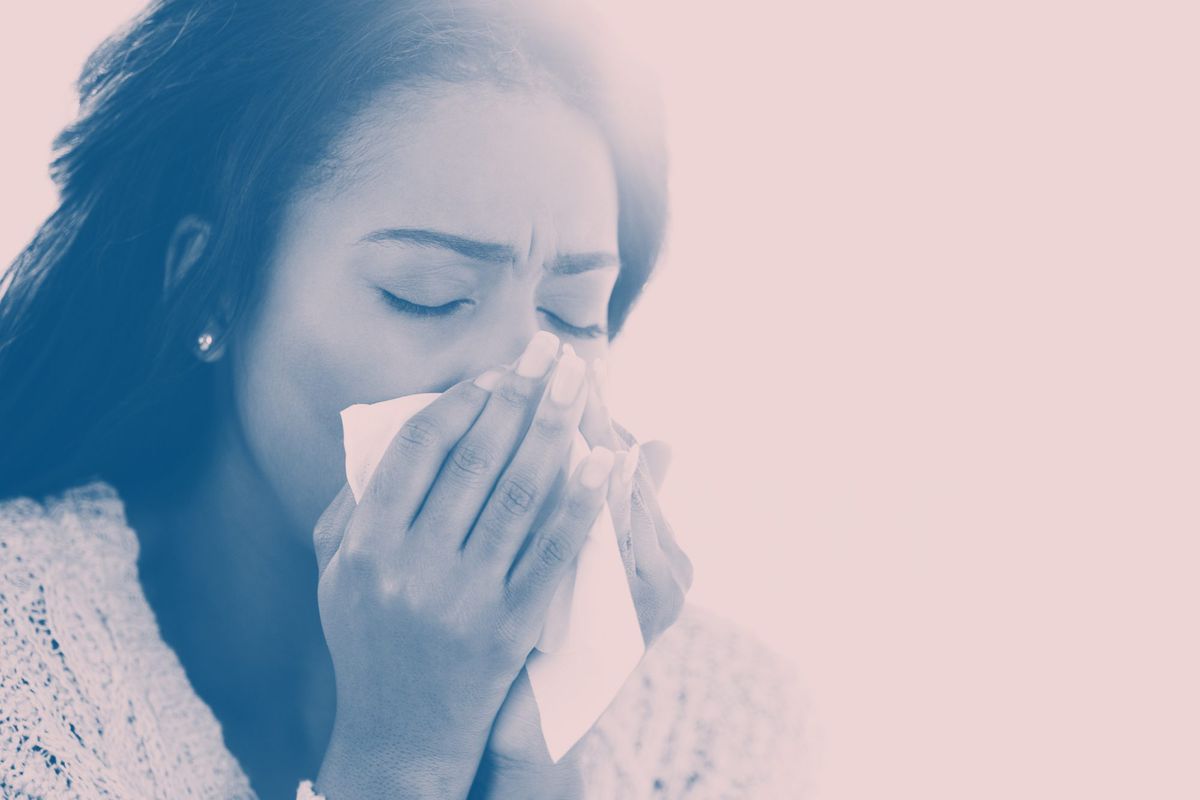Most sinus infections are caused by viruses—which is both good and bad news. The bad? Viral sinusitis can’t be zapped with medications. The good? Your symptoms, which should vanish in seven to 10 days on their own, can be well managed in the meantime with some pretty simple home remedies.
“After you start experiencing symptoms of sinus congestion, cough, headaches, fullness in ears, you should start doing home remedies,” says Prachi Jindal, MD, primary care physician with UnityPoint Clinic Family Medicine–Medical District in Cedar Rapids, Iowa. “I usually give people seven days to see if symptoms resolve.
If they have consistent fever of more than 102 and are not responding to ibuprofen, then it may be bacterial.”
At that point, it makes sense to see a doctor. Bacterial sinus infections often can be treated with medication, namely antibiotics. But viral sinus infections can be managed with some of these effective home remedies.
RELATED: Are Sinus Infections Contagious?
Nasal rinses
Your first go-to sinus infection home treatment should be nasal rinses. They’ll help dislodge and expel the backed-up mucus that’s making you miserable. Nasal rinses can be done a number of different ways, but an easy one is with a neti pot, a small container that resembles Aladdin’s lamp, which you can pick up at any pharmacy or online (we like the Baraka Ceramic Neti Pot, $25, amazon.com). You can also use a nasal syringe or squeeze bottle to rinse your nasal passages or a saline nasal spray.
Fill the pot with distilled water from the store and about half a teaspoon of non-iodized salt and half a teaspoon of baking soda. You can also boil water from the tap, but make sure it comes to a boil (and then cools). That will kill any nasty germs.
“Using that twice a day would be really helpful. It basically moisturizes and loosens secretions which, overall, provides patient comfort,” says Dr. Jindal. “It basically rinses off the sinuses.” In between uses, rinse the device with sterile water and let it air dry.
Hot steam
Hot steam operates on the same principle as sinus rinses and is even easier. Boil some water, then drape a towel over your head and the pot so you can breathe in the rising steam. Just don’t get too close to the steam so you don’t burn yourself. Another alternative: Linger in a hot shower.
Like nasal rinses, hot steam can moisten your nose, send mucus on its way, and alleviate some of the sinus pain or pressure.
RELATED: 11 Signs It’s More Serious Than the Common Cold
Aromatherapy
A variation on the hot steam protocol is to put a few drops of eucalyptus oil (try this therapeutic grade pick from [tempo-ecommerce src="https://www.amazon.com/Eucalyptus-100-Therapeutic-Grade-Essential/dp/B00P6O790E/" rel="sponsored" target="_blank">cineole, opens up your airways and quells inflammation. One study found that a pill containing cineole relieved headaches, pressure points, nasal blockage, and mucus secretion from sinusitis. Cineole has also been shown to be helpful in treating acute bronchitis.
Humidifiers
The steam from a humidifier (we like the Honeywell HCM350W Germ Free Cool Moisture Humidifier, $70, amazon.com) can moisturize a whole room and, with it, your poor nasal passages. Many people use them regularly to temper the air in dry climates, and humidifiers can also relieve sinusitis symptoms and other respiratory ailments.
The key with humidifiers is to not ramp up the humidity too high and to keep them clean. Left untended, dirty humidifiers can be nesting spots for mold and bacteria, both of which can actually cause sinus infections. Some people also add eucalyptus oil to humidifiers.
RELATED: The Best Humidifiers for Dry Skin and Stuffy Sinuses
Warm compresses
Putting a warm compress on your face can lessen some of the pain from pressure in your sinuses. The simplest type of warm compress? A wash cloth or towel dampened with warm water.
Stay hydrated
Yes, you've heard this advice countless times. But drinking lots of fluids—preferably water—will help you feel better. In the case of a sinus infection, staying hydrated will thin your mucus, making it easier to drain. Steer clear of caffeine and alcohol, which could have the opposite effect and dehydrate you. Alcohol may also cause your sinuses to swell more, making symptoms even worse.
RELATED: 10 Products to Help You Find Sinus Relief
Elevate your head at night
Sleeping flat means mucus can collect in your sinuses, aggravating symptoms. Use an extra pillow or put something under your mattress to lift your head up—and gravity will do the rest. That should also help you get better sleep, always a good idea while you’re getting over an infection.
Bear in mind that raising your head at night—along with nasal irrigation, drinking lots of water, and inhaling steam—can also prevent many sinus infections. As can washing your hands.
When to see a doctor
If your symptoms go on for more than 10 days or you show no signs of getting better, check in with a doctor. You could have a bacterial infection and may need antibiotics.
You should also see a doctor if you have sinus infections that keep recurring. One sinus infection is bad enough, but several can make things really miserable. One study found that people with chronic sinusitis rated their pain higher than patients with congestive heart failure, chronic obstructive pulmonary disease, angina, and sciatica.
To get our top stories delivered to your inbox, sign up for the Healthy Living newsletter
